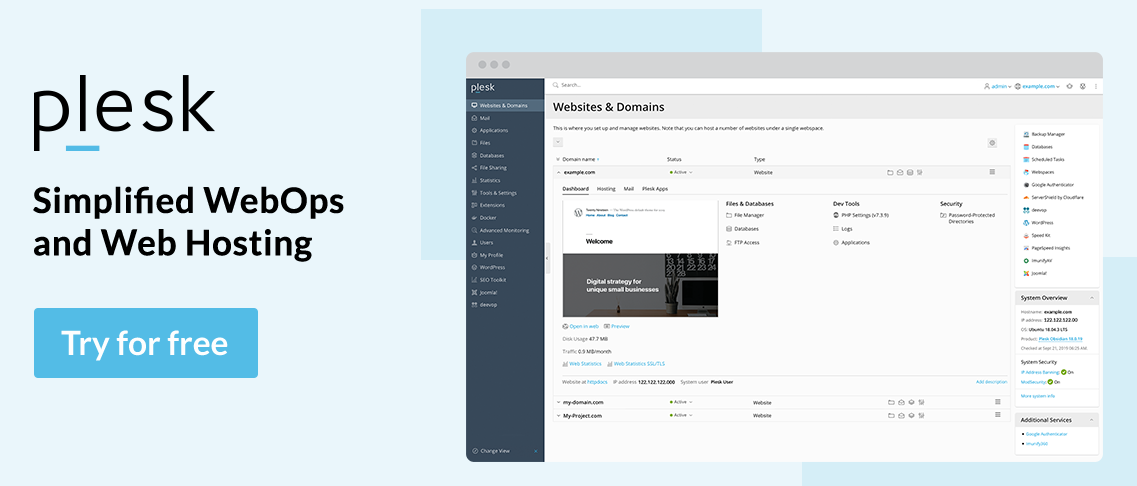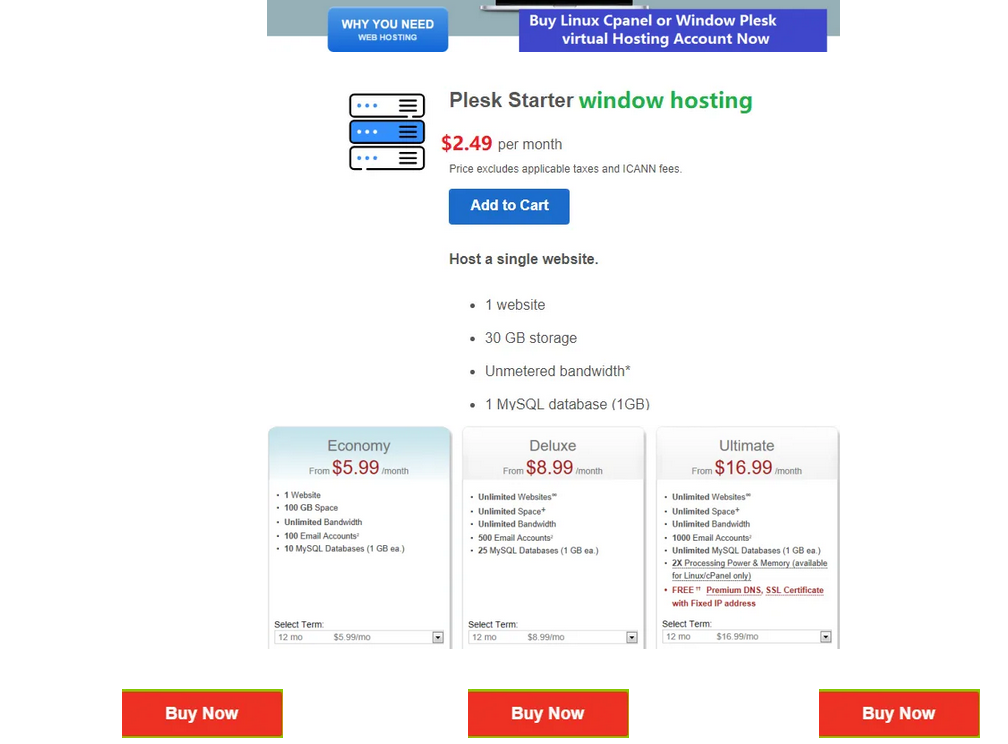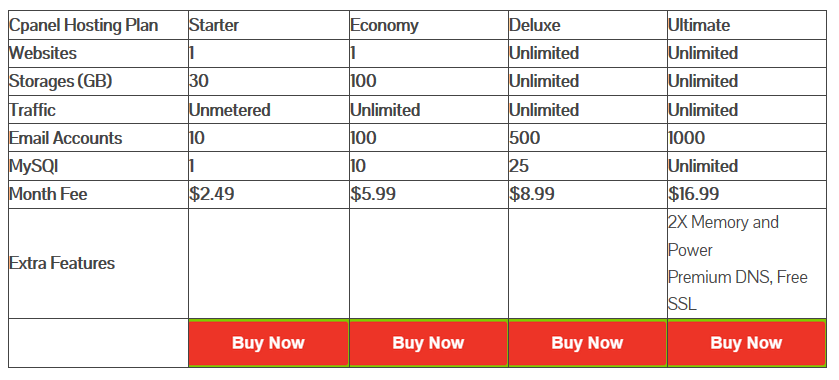Once you start comparing the Linux vs. Windows hosting server, you’ll see the biggest difference when you log in. Linux use a command-line interface, where users enter strings of text to perform actions, compared with the familiar point-and-click interface used by Windows servers.
Some applications and features are only available for one specific type of hosting. For example, the popular cPanel hosting application runs only on Linux servers. Meanwhile, the Visual Basic or .NET programming languages are only available with Windows Hosting.
Windows Specific Applications
Windows applications which require a Windows server:
-
-
- ASP Classic
- ASP.NET
- MSSQL (Microsoft SQL Server)
- MS Access (Microsoft Access)
- Visual Basic Development
- C#
- Remote Desktop (dedicated server only)
-
The main “advantage” or distinction of Windows servers is that they can run Microsoft software such as Access and MS SQL databases. Windows servers also offer web developers the use of Microsoft’s programming environments such as Active Server Pages (ASP), Visual Basic Scripts, MS Index Server.
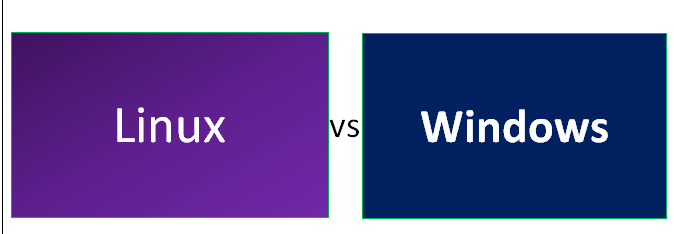
Users can develop web site using the familiar interface of Microsoft tools such as, Visual Interdev, and Microsoft Access. With ASP users can develop a database-driven web site using Microsoft Access and Microsoft SQL as the database
Windows Dedicated Servers can support additional Windows-specific applications. For some applications, you may need to purchase a license and install the software on your Windows dedicated server.
- Microsoft Exchange (requires license & Installation)
- Microsoft SharePoint (requires license & Installation)
Linux Specific Applications
Applications that require a Linux-based server.
-
- SSH
- Scripts or applications that require specific Apache modules
Control Panels Windows servers and Linux servers use different control panels.
- cPanel is available on all Linux-based hosting plans, such as Linux Shared, Reseller, VPS and Linux Dedicated Servers.
- WHM (Web Host Manager) is available on Linux Reseller, VPS and Dedicated Servers.
- Plesk is available on Windows Shared and Dedicated Servers.
File Names
Another difference between Linux and Windows servers is that Linux files are case sensitive while Windows files are not.
For example:
- On a Linux server, home.html and Home.html are different names.
- On a Windows server, home.html, Home.html and HOME.HTML are all the same name.
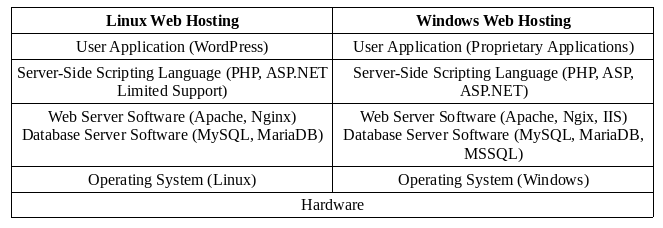
Easy-to-understand cPanel hosting.
Whether you’re migrating a site, opening a hosting account or considering the options for cPanel hosting services, rest assured – that with cPanel hosting – you’ll be choosing the best control panel, and best hosting solution. Our cPanel hosting platform, with its intuitive, point-and-click interface, lets you manage all aspects of your website. Easily. That’s why the web-hosting-control panel of choice for many is a cPanel web host manager (WHM).
Expert help is here. For you.
When comparison shopping for web hosting – and you have additional questions about PowerHoster cPanel web hosting – you can always call one of our friendly, knowledgeable customer service individuals to help you make the right choice.
They’re smart. They know web hosting.
What is cPanel for hosting?
cPanel is a web hosting control panel that gives a web hosting customer/owner a user interface that is intended to help make managing their piece of a shared server and their website easier.
Do I need cPanel for managing a website?
You’re better off if you do. Although cPanel is one of several options for managing a website, its ease of use makes cPanel is an industry-leading control panel. It allows users to create websites using a variety of content management systems (CMS) including WordPress, Drupal, Magento and Joomla.
Is cPanel hosting available with a WordPress website?
cPanel and WordPress serve two different functions, yet they are compatible with each other; cPanel is a control panel that provides a simpler way for web hosting users to manage their piece of a shared server. WordPress is a website or blog-building application that can be downloaded and installed onto your server by using cPanel.
Does GoDaddy charge extra for a web hosting control panel?
Nope. All GoDaddy web hosting plans include the control panel at no extra charge.
What is the difference between cPanel’s powerful tools and Hosting?
Hosting is a term that refers to a user’s access to space on a server. cPanel is a control panel that give that user an interface to put their server space to work doing things like creating a website or housing files and data.
What alternative solutions does GoDaddy offer to cPanel (Odin, Plesk, Onyx, etc)?
GoDaddy offers a couple alternatives to web hosting cPanel. For web hosting GoDaddy also offer Plesk Onyx that is run on Windows servers. For hardcore developers, we have Virtual Private Servers (VPS) and Dedicated Servers available without a control panel. If you are a hosting reseller, we also offer WHMCS hosting so you may easily manage your server space and client accounts.
Is cPanel open source?
No. However, you may use cPanel to access and install over 100 applications, install different types of software, CMS, shopping platform or WordPress (which is open source).
